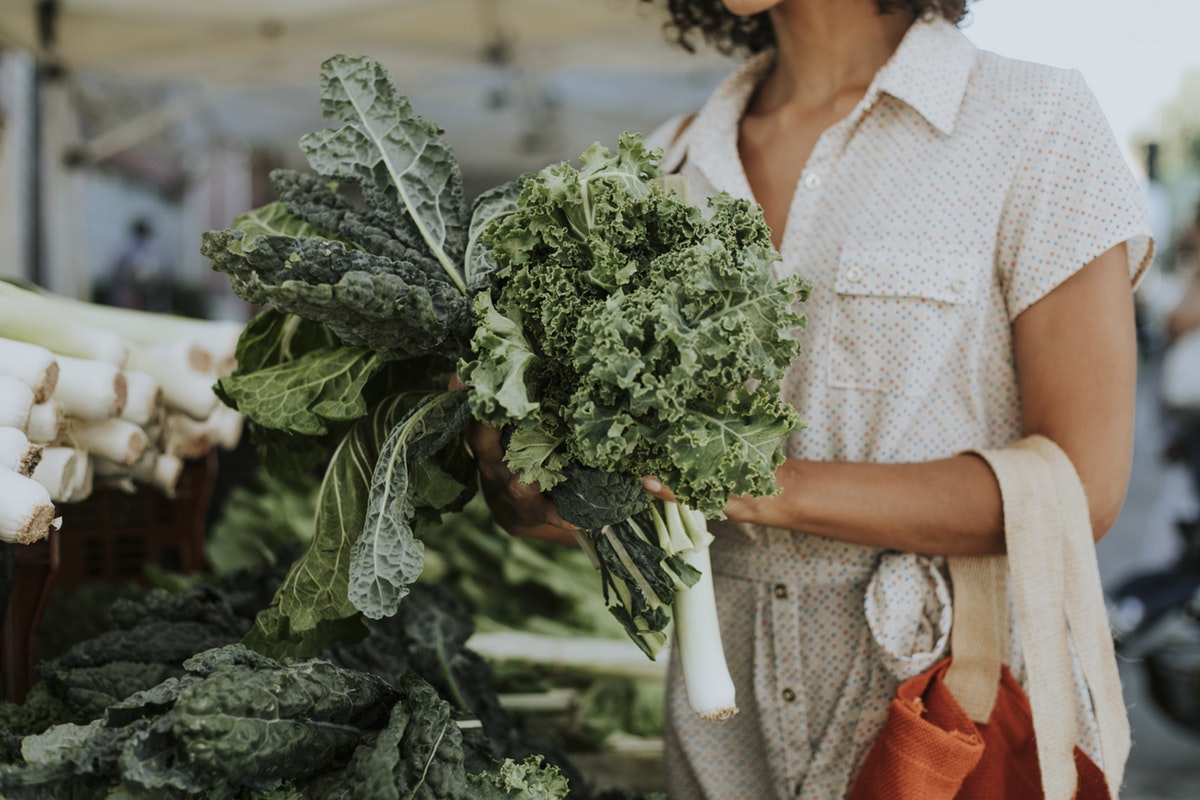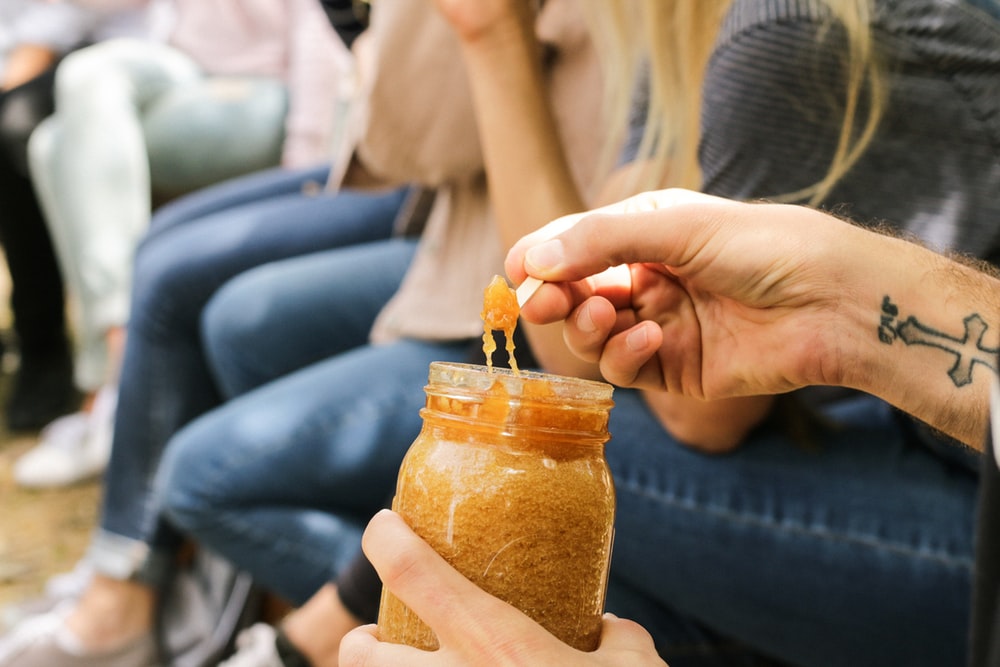Now is the perfect time to start thinking more smartly about just how much food you’re throwing away. Whether cooking a simple mid-week dinner for family, hosting a dinner party for a group of friends or cooking a busy Saturday night service in a restaurant, trying to reduce food waste should be a priority for both culinary professionals and the budding cooks at home.
Cooking with thoughtfulness where waste is concerned will not only save you money but your conscience too. With this in mind, we’re sharing these IDEAL tips on how to avoid wasting food and turning anything left over into something downright delicious.
LET SEASONALITY DICTATE YOUR SHOP
The benefits of shopping with seasonality in mind are endless. Firstly, taste. Items in season, whether asparagus in May, grouse in August or peaches in September, taste so much better. They are bright, vibrant and more nutritionally sound. Secondly, it’s economically savvy.
Ingredients at their best are plump and pound-for-pound better value for money. Thirdly, as fruit and vegetables taste so much better in season, you’ll be moved to cook with them more, leading to a healthier diet. All in all, it’s a no brainer.
Shopping with thoughtfulness to seasonality will mean you don’t buy a glut of unripe, tasteless tomatoes in early spring that you can’t bring yourself to eat, or a plaice in winter that lacks sufficient yield for a satisfying meal.

BUY, AND BUY MODESTLY, FROM MARKETS AND GREENGROCERS
Not everyone has the luxury of having a nearby market or local greengrocer’s supplying fresh fruit and vegetables, but if you do, by all means make the most out of it. We’ve all bought a massive packet of carrots in Sainsbury’s just for one, letting the rest rot in the bottom of the veg basket.
At smaller, independent places, you can buy as many as you need, and no more. The brown paper bag preferred by markets will alleviate a bit of that plastic-bag guilt too. Perfect. Waste matters aside, supporting local farmers and producers is vital – the quality is far better than multi-national corporations and farming and work practices more ethically sound, too.
FOLLOW A FIRST-IN, FIRST-OUT MANTRA
A philosophy deeply entrenched in all restaurants worth their salt; a first in, first out policy where your fridge and larder are concerned will keep fruit and vegetables from going off. Those courgettes you bought last week need using before that sweetcorn you just picked up on the way home, even if you’re in the mood for corn on the cob. Keep a sensible rotation system going and don’t let foodstuff at the back of the drawer go past its best.
EMBRACE LIMITATIONS
Following on from the above point, embrace having to use up an ingredient you may have seen enough of for one week. Be experimental with new cooking techniques and seasonings.
Be creative – there are so many different ways to coax flavour and nourishment from an ingredient – and have fun with it. Consult recipe books and the internet and remember, sometimes the finest cooking comes from a place of limitation and restriction.
The best cooks are always learning and you’ll find yourself improving your skills and range if you simply get stuck in.

TURN LEFTOVERS INTO A SECOND (AND THIRD, AND FOURTH) MEAL
We all know a roast dinner turns into a sandwich for lunch the next day. But take it further, and use up everything. Those spare roasties can be an amazing Spanish omelette with only the addition of some eggs and onion. There’s a soup to made by pureeing the broccoli florets you were too full to finish – just add cream and some liberal seasoning. Freeze the gravy for a deep base to your next sauce.
Think outside the box – an extra portion of risotto leads to arancini for lunch, too much mash becomes tomorrow’s potato cake; the list goes on and gets more delicious with each extra touch of inventiveness.
PEELINGS, SEEDS AND SCRAPS ARE YOUR FRIEND
Think again about items traditionally destined for the bin. View potato peelings in a different light – soak them in the milk or cream you’re going to use for mash and they will impart some serious flavour.
Tomato seeds can be blitzed in a food processor and turned into a dressing rather than being discarded. The peel, seeds and off-cuts of cucumber can be pureed and used as a delicious base for a sauce with your fish supper. When you peel prawns, keep the shells and make an amazing bisque. Even seeds from fruit, dried in the oven, can be sprinkled over an ice cream or yoghurt for added texture. Look at everything in a different light and think how to utilise and maximise it.
If you’ve trimmed down some meat to make it more presentable, use the trim to bolster up a sauce or gravy. Equally lovely, cook it down and make a croquette out of it (using breadcrumbs from soon-to-be thrown away stale bread, naturally) Ditto fish – add a little citrus fruit and sugar and turn trim into a tartare. And please, please, please don’t throw away any offal or innards you may have been gifted with when you bought a whole chicken or duck. It’s delicious in so many ways.

CHUTNEYS, JAMS AND RELISHES
If you have a glut of fruit that you just can’t make a dent in, or some past its best, turn it into a delicious chutney or jam. By cooking it down with sugar, vinegar and seasoning, and storing it in an air-right, sterilised container, you have a delicious relish to enjoy with cheese, on toast, or simply out of the jar, for months, as it keeps really well.
BONES ARE FLAVOUR
The butcher and fishmonger are your friends. They have plenty of bones backstage they are more than happy for you to use to make amazing stock and sauces from. Establish a good relationship with your local guys and they’ll always keep you plugged in to the best deals. When buying fish fillets from the fishmongers, ask for the bones from that fish too, as it’s rightfully yours and otherwise destined for the bin. Make fish stock or sauce bases from them, exploiting maximum flavour and minimising waste in one foul swoop.
PICKLE, CURE, SMOKE, SALT, FERMENT
By pickling, curing or fermenting foods, you preserve them for a healthy length of time. You also create new flavours and textures from familiar ingredients that you may have gotten bored with. It’s a practice beloved of top restaurants and one which any good home cook should have in their armoury (and fridge).
FOR HEAVEN’S SAKE, USE A COMPOST BIN
If your fridge is full to bursting with jars of pickles, potato peels steeping in milk, ragus of meat scraps and offal, purees of vegetables and jams, and you really need to throw something away, please use a compost bin. By feeding the waste back into the ground, you’re encouraging the natural cycle of growth and harvest, and reducing waste in the process.
All of this boils down to one key piece of advice – shop and cook thoughtfully, with an awareness and respect for the natural world and producers. If we pay mind to the lengths of effort a fisherman has been to, braving the cold, battling a storm to secure his catch, then we’ll be far less brazen with letting the produce go to waste. The same goes for rearing a cow or nurturing a crop – there has been an enormous amount of hard work to get it to our plate and by being mindful of this, we can all cultivate a better attitude towards food waste.





